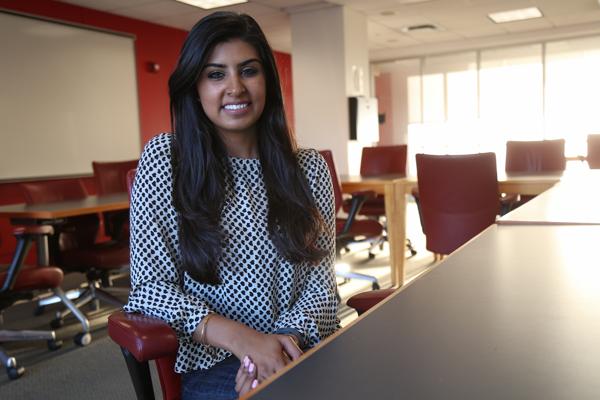While most students watched the Olympics from their couches, others were in Rio de Janeiro experiencing the games firsthand.
Students from programs across GW traveled to Brazil as a class to learn what goes into putting on the Olympic games. Students in the class learned about what it takes for a country to host the games, wrote a research paper and conducted research for the International Olympic Committee — all while getting to see the world’s top athletes compete.
Lisa Delpy Neirotti, an associate professor of sport management who teaches the class, said she first attended the Olympics in 1984 for the Sarajevo winter games and began teaching the course during the 1992 summer Olympics in Barcelona. She now teaches the class every two years for both the summer and winter Olympics.
“I started as a student, and I learned a significant amount, and I knew I wanted to do that for my students,” Neirotti said.
The experience gives students insiders’ perspectives on what it takes to put on the Olympics, rather than just watching the end product that’s broadcast into millions of homes, she added.
As part of the course, students attended three extensive lectures at GW about the history of the Olympics, took an exam and read a book either about the business of the games or the social, cultural, environmental and financial impacts of them. Once in Rio, students interviewed spectators about their experiences and collected data.
Mari Manoogian, a master’s student studying global communication, said students attended lectures in Rio by guest speakers from all aspects of the “Olympic world,” like a senior vice president at Coca-Cola who talked about sponsoring the games.
The class also volunteered at the United States team’s hospitality house, Manoogian said.
“That was a really great opportunity to kind of see an inside look as to how Team USA runs their events,” Manoogian said. “It was also chance to meet with some athletes and some communications and leadership folks at Team USA.”
Manoogian said one her favorite parts of the trip was traveling to a favela, a low-income neighborhood near Rio de Janeiro, with a few non-governmental organizations to experience a sports diplomacy development initiative called Fight for Peace. Fight for Peace works with young people in communities affected by crime and violence, using martial arts and boxing to help them realize their potential, according to their website.
“We got the opportunity to go to this gym — this boxing and martial arts gym — and we got to meet with a lot of young people who are living in favelas and hear their perspective on the lead up to the Olympics, what’s happening during the Olympics and what they believe the impact the Olympics will have on their country in the future,” Manoogian said.
Students conducted research inside the venues for the International Olympic Committee, Lisa Chazanovitz, a second year master’s student in tourism administration with a focus in sports management, said.
Each student was assigned a venue and tracked data during competitions, like how many parking spaces were used and how fast people moved through security, she said. The I.O.C. will use the data to give recommendations to future host cities.
Sara Kalwar, a business administration master’s student, said she was surprised by how organized the Olympics were and how safe she felt after hearing before the games that people were concerned.
Students were really on the inside of the games: Kalwar said she and a classmate, using their I.O.C. credentials, sat in the athlete section of the swimming venue by mistake.
“We picked this one area that looked empty and didn’t realize it was the athlete seating. So we sat with the France swimming team and the Singapore and Italy ones, as well,” Kalwar said. “All of the swimming teams were sitting in our area, so we got to talk to the athletes just casually.”







